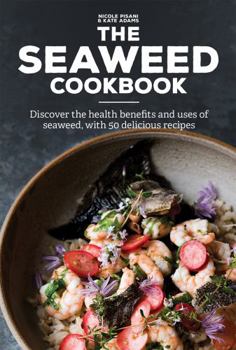The Seaweed Cookbook: Discover the Health Benefits and Uses of Seaweed, with 50 Delicious Recipes
Select Format
Select Condition 
Book Overview
A delicious way to better nutrition.
Seaside societies have included seaweed in their diets for millennia. Today we are rediscovering what they have long known: seaweed provides a nutritional punch, a powerful mix of iodine, iron, vitamin C, antioxidants, fiber, vitamin K, vitamin B12; minerals, fiber and protein. It is linked to lower rates of cardiovascular disease, Type 2 diabetes and obesity and it is believed to help in the prevention and treatment of cancer.
The Seaweed Cookbook covers all aspects of seaweed. It is for those who would like to incorporate this powerful food into their diet and it is for those who already enjoy it and want to discover new recipes. The book explains the benefits of eating seaweed, where to buy it, how to collect it (if you're lucky enough to live seaside), and how to dry, store, soak and handle it as an ingredient. Most importantly, there are 50 easy and delicious recipes.
There are many kinds of seaweed used in the recipes, each with its own taste profile, uses and benefits: Arame - mild, almost sweet, the best introduction to sea vegetables Nori - the common sushi wrapper, great toasted Kombu - an aromatic base for a broth, used in miso soup and other Japanese dishes Wakame - related to kombu, believed to have fat burning properties that could fight obesity Hijiki - for natural beauty, its deep black color can be off-putting for some people Dulse - a snack seaweed packed with protein and iron, often used as a salt Agar - used as a thickener in sweet and savory dishes, with mild laxative properties Kelp - packed with vitamins, minerals and iodine; useful for a number of health issues Alaria - light green and almost transparent Sea palm - wavy fronds are mild, almost nutty-tasting.
The Seaweed Cookbook includes recipes for appetizers, main and side dishes, baking, such as scones and shortbread, an amazing granola and as a chocolate flavoring. A little seaweed goes a long way, so it is perfect as a seasoning, whether in salt or infused in oils and dressings, and mixed with seeds. There are savory broths, salads and stews and because it is so good for our skin, there are recipes for body scrubs, seaweed soaks and masks.





